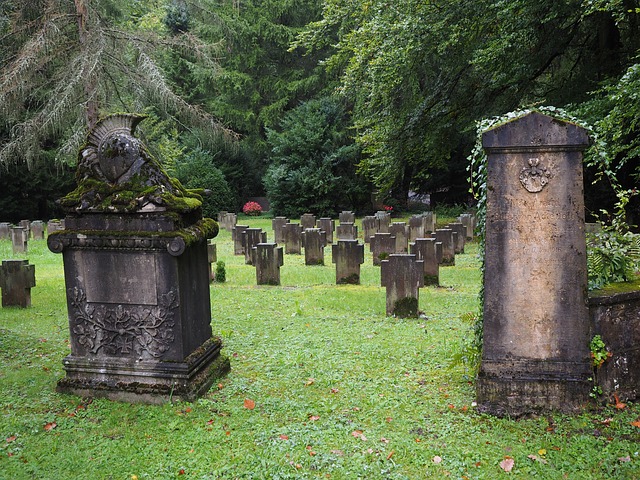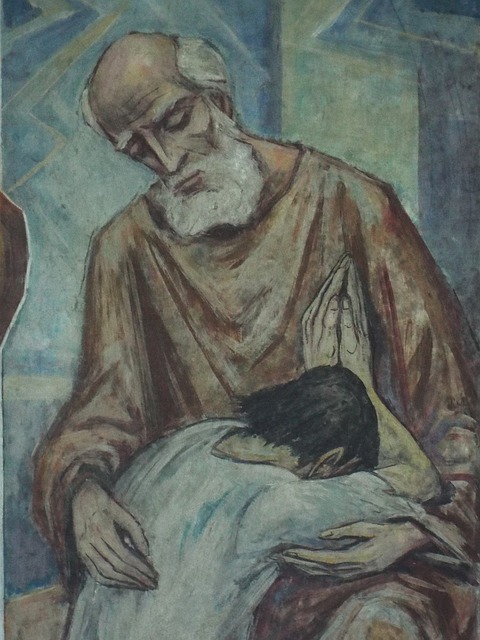“Sirs, what must I do to be saved?” – Acts 16:30b
The Right Questions
Amazing what constant reminders of our mortality can do to our perspective. Hours of hospital visits, cancer centers, and non-stop discussions about test results and medical options have a way of reminding us that we are all terminal. Faced with this truth we are forced to step back and do a lot of evaluating. Certainly, we ask a lot of questions but are they the right ones? Without a doubt, our priorities are adjusted at such times. Suddenly the weather forecast and sports scores just don’t seem so important or interesting. It is a good time to pause and take a breath and ask, “why?”.
How Much?
Why do we spend so much time accumulating possessions only to give them away as we age? I understand that we are to work and provide for our families, but how much is enough? How much is too much? How often do we deny our children or grandchildren what they crave and need; our time; because we are too busy working? Again, I ask, for what? The possessions are not as important to them as our attention. Undivided!!
How about our health? It has been said that when we are young we sacrifice our health to accumulate wealth, and when we are old we spend our wealth to try to buy back our health. As we step back and prioritize, we need to ask ourselves if the stress we place ourselves under is worth it. Do we really need to be so busy? Is it a necessary evil, or do we use busyness as a means of escape? And if so; from what? Are we afraid to be confronted with our mortality? More importantly, are we afraid of the most important question, what happens to us after death? As important as relationships and health are, they are not as “urgent” as eternity. So while we are talking about stepping back and evaluating, let’s learn an important lesson from the Philippian jailer.
The Question!
In Acts chapter sixteen, we find Paul and Silas in prison. With their feet in bonds, Paul and Silas decided to “pass the time” by praying and singing hymns. Naturally, they had a captivated audience in the other prisoners. Around midnight, God decided to set the prisoners free via an earthquake that loosened their bonds and opened the prison doors. The jailer was definitely faced with his mortality since the loss of the prisoners could have resulted in his execution. As a matter of fact, rather than wait to be executed, he was going to take his own life assuming that all of the prisoners had escaped. Instead, once torches were lit he found that despite the loosened bonds and opened prison doors, none of the prisoners had fled. Seeing that his life was spared, he asked the most important question, that concerning his eternal life, “Sirs, what must I do to be saved?”.
The Answer!
I don’t mean to be morbid, but let’s be real, you and I are terminal. Because of sin, we are all going to die. Do you know where you will spend eternity after you have taken your last breath on planet earth? Have you ever asked the question, “What must I do to be saved?”? Look at the response Paul and Silas gave to the jailer, “Believe in the Lord Jesus and you will be saved.” Believe! Are you “working” for your salvation? If so why? If you can earn your salvation, why do you think Jesus hung on a cross? As a matter of fact, did you know that your attempt to earn eternal life is an insult to the sacrifice Jesus made on Calvary? As humans, we are “wired” to work. In our pride, we like to earn what we have. However, this doesn’t work in the spiritual realm where Grace reigns.
Spiritual “Work”
In John chapter six, Jesus was confronted by some Jews who wanted to know what work they had to do. Look at the exchange.
28 Then they said to him, “What must we do, to be doing the works of God?” 29 Jesus answered them, “This is the work of God, that you believe in him whom he has sent.”
Ok, the Jews say. But if we are to place our eternal destinies “in you”, what evidence do we have that you are trustworthy? How do we know we can trust you? Again, look at the exchange.
30 So they said to him, “Then what sign do you do, that we may see and believe you? What work do you perform? 31 Our fathers ate the manna in the wilderness; as it is written, ‘He gave them bread from heaven to eat.’” 32 Jesus then said to them, “Truly, truly, I say to you, it was not Moses who gave you the bread from heaven, but my Father gives you the true bread from heaven. 33 For the bread of God is he who comes down from heaven and gives life to the world.” 34 They said to him, “Sir, give us this bread always.”
35 Jesus said to them, “I am the bread of life; whoever comes to me shall not hunger, and whoever believes in me shall never thirst.
The Only Answer
Moses we “know” was God sent because he gave our fathers manna to eat. That’s pretty impressive Jesus, can you compete with that? Jesus had just taken a few fish and loaves of bread and fed the multitudes. That was impressive, but the crowds were looking for more. Jesus simply says, our fathers may have eaten manna with Moses, but my Father has sent down the bread of life from Heaven. He goes one step further and says that HE is the bread of life who came down from Heaven. Whoever comes to Him shall not hunger and whoever believes in Him shall never thirst. In other words, not only am I trustworthy, He tells the Jews, I am the ONLY means of eternal life.
At the end of the day, we all have a final authority. Like the Jews, we look for something or someone we believe is trustworthy. There are so many passages I could quote to validate the sufficiency in the blood of Christ and the exclusivity of the sacrifice of Christ as our ONLY means of salvation. For now, I hope I have caused you to pause and look at your life and ask the important questions, and certainly the most important question, if you haven’t yet done so. Why do you exist? What are you living for? What are you doing with your time? What must you do to be saved?
The only cure for our sins is faith in Jesus. We must confess we are sinners. We must admit we are helpless and hopeless left to ourselves. We must repent of our sins and place our faith in Christ alone. That is what it means to believe in Christ. Come as a penitent to the cross and leave your sins there for His blood to wash away. It is the most important thing you can do with your life.
13 I write these things to you who believe in the name of the Son of God, that you may know that you have eternal life. – 1 John 5:13




 Open Arms
Open Arms